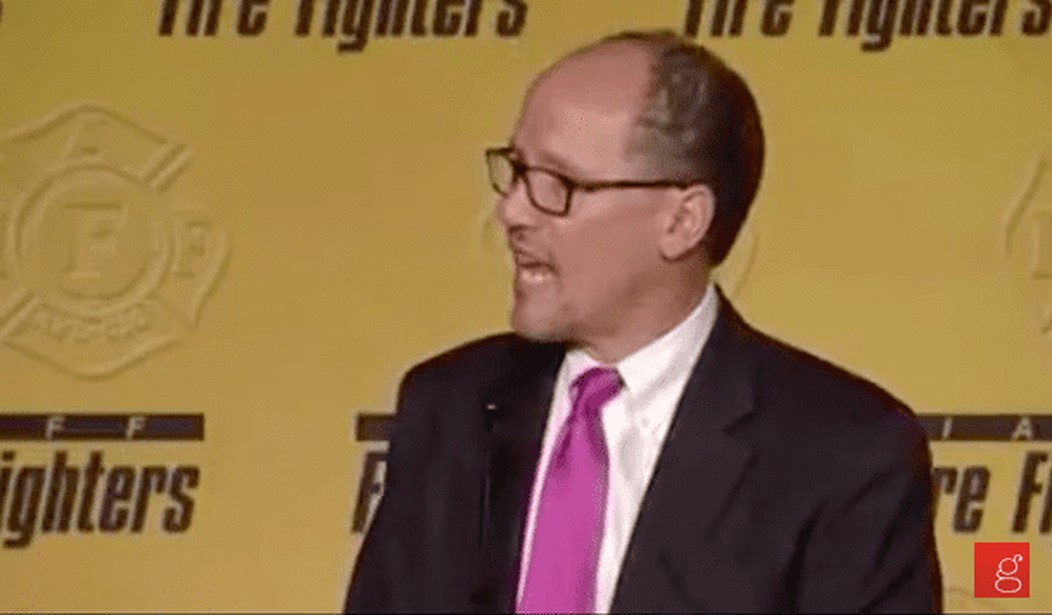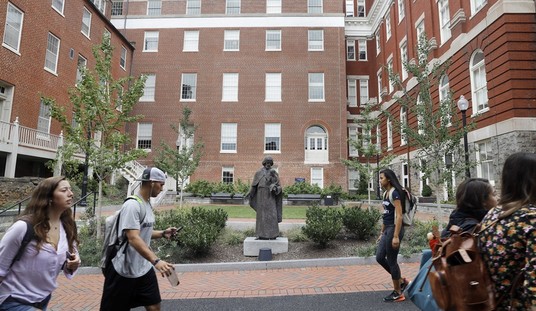WASHINGTON – Colin Kaepernick, who remains an unsigned free agent, has been politically blackballed by the NFL for protesting last season against black oppression in America, Seattle Seahawks defensive end Michael Bennett said Monday.
The former San Francisco 49ers quarterback drew national attention last season when he sat down during the national anthem at a preseason game. He took a knee at subsequent games in what he said was a gesture to show better respect for U.S. service members. Kaepernick’s actions followed a series of highly publicized police shootings and altercations around the country that resulted in the deaths of black men. The quarterback said he refused to stand for a country that “oppresses black people and people of color.”
“Of course I think he’s been blackballed, obviously,” Bennett said during an event at Busboys and Poets on 14th Street in D.C. “Maybe the players agree that there’s a place for politics in sports, but I don’t think the teams, or the organization, or even the fans believe there’s a place for politics in sports. I think people want you to do your job and shut up — score a touchdown, dunk a basketball, hit a home run and call it a day. We’ll buy your jersey, and that’s it.”
Bennett said it’s important for professional athletes to speak up about social issues and inspire others because social change can only occur through mass action or demonstration. The 31-year-old defensive end, who signed a three-year, $31.5 million contract extension with the Seahawks in December, drew attention to himself in February when he opted out of an Israeli-government-sponsored trip to draw attention to the Israeli-Palestinian conflict.
The U.S. Campaign for Palestinian Rights and other organizations – along with African-American activists Angela Davis, Harry Belafonte and Danny Glover – lobbied players to decline the invitation from the Ministry for Strategic Affairs and Public Diplomacy, arguing the athletes would “help the Israeli government normalize and whitewash its ongoing denial of Palestinian rights.” Bennett and 10 other players turned down the trip.
Bennett stated in a letter that he wanted to be “in accord with” his own conscience. Like Kaepernick, Bennett sparked a public firestorm.
“To be honest, I didn’t know what my letter was going to do. I was just in the moment. It was what I wanted to say, what I wanted the world to hear. I didn’t know it was going to affect people the way it did,” Bennett said, noting that he spent “two days” in his room researching and also, admittedly, crying over the issue. He said he plans to visit Israel on his own time to form his own opinions about the Israeli-Palestinian conflict.
Bennett said it’s important for children of color to see people in powerful positions speak out about social issues and for professional athletes to show that they’re more than just athletes. The public is paying attention, he said, because athletes sell everything in America, whether it’s cars, clothes, liquor, gum or toothpaste, and they need to be mindful of the decisions they make.
Kaepernick’s decision to protest the national anthem was a significant step that opened up a national conversation, Bennett said, praising the quarterback for acting on the issue and backing up his words, calling him a “man of the people.”
“In order to love the people, you have to die for the people. And I don’t mean dying physically. I mean dying spiritually, changing your whole mindset of who you used to be and what you thought was important,” he said. “Now that your eyes are open, it just changes you. … Once you’re awake, it’s hard to go back to sleep.”
He also expanded on the opinion that Kaepernick has been shunned by NFL ownership.
“I feel like he doesn’t have a job because it’s one of the things he spoke about,” Bennett said. “You can’t say it’s talent, because if you look at the quarterbacks who have been signed there’s no one close to his talent – so that’s the elephant in the room that nobody wants to speak about.”
Bears quarterback Mike Glennon, 49ers quarterback Brian Hoyer and Jets quarterback Josh McCown are among the most notable signings for the position this year. Kaepernick led the San Francisco 49ers to Super Bowl XLVII in 2013 and the NFC championship in 2014 before splitting time with quarterback Blaine Gabbert the past two seasons.
Bennett said Kaepernick’s actions and the apparent fallout will have both an inspiring and chilling effect on other professional athletes. On one hand, the series of events has been empowering, he said, but it’s also created fear.
“I think a lot of people might be scared because they might not have a job when they speak up. Their jerseys won’t be bought anymore,” Bennett said. “If they speak up, they won’t be invited to certain things.”
Every NFL locker room discussed Kaepernick’s actions last season and how to proceed, Bennett said, describing the Seahawks’ conversation as an emotional one. Early in the season, the team agreed to show up for a game locked arm in arm, rather than taking a knee. He said there are many white players on the team who grew up in rural, mostly white communities who don’t fully understand the struggle of African-Americans and that the team had enlightening discussions about black history.
“It was a hard conversation to have, and we’re lucky to be on the team with (head coach) Pete Carroll to have that conversation because most teams didn’t really have a conversation,” he said. “It was like, ‘Hey – we’re not doing that shit. We’re doing this. This is not what we’re about.’”
Bennett also had a piece of advice for those who are afraid to take a public stance on social issues: “You have to be ready to speak your mind. If you live your whole life just living in a shell, not telling your whole truth, then you’re not really living. You’re not fully being who you truly are.”









Join the conversation as a VIP Member